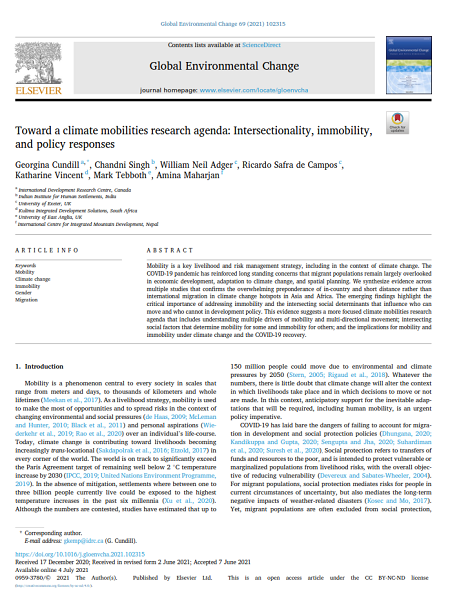A new paper “Toward a climate mobilities research agenda: Intersectionality, immobility and policy responses” has just been published in the journal Global Environmental Change. The paper, led by Georgina Cundill with a team that included Katharine Vincent, draws on research conducted across a variety of contexts conducted under the Collaborative Adaptation Research Initiative in Africa and Asia, highlighting the prevalence of in-country and short distance migration over international migration.

Mobility is a key livelihood and risk management strategy, including in the context of climate change. The
COVID-19 pandemic has reinforced long standing concerns that migrant populations remain largely overlooked in economic development, adaptation to climate change, and spatial planning. The paper calls for a more focused climate mobilities research agenda that includes understanding of multiple drivers of mobility and multi-directional movement; intersecting social factors that determine mobility for some and immobility for others; and the implications for mobility and immobility under climate change and the Covid-19 recovery.
